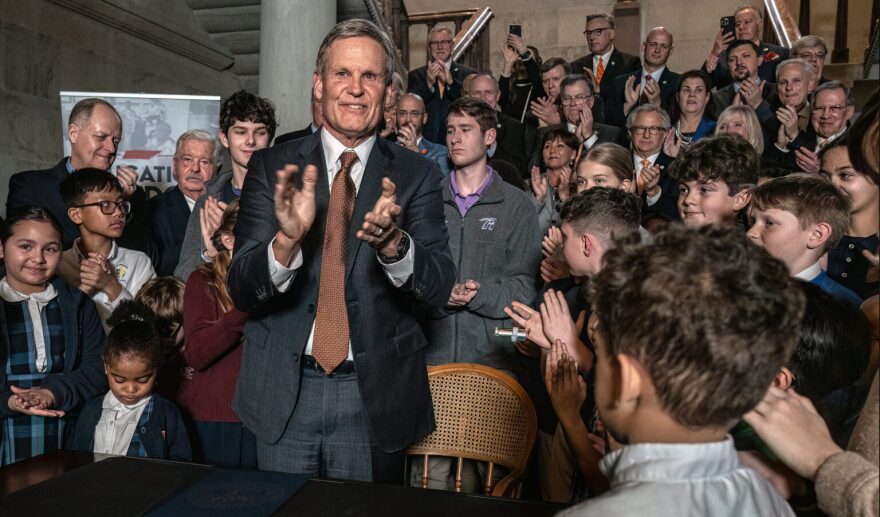Key Tennessee lawmakers are taking different views toward Gov. Bill Lee’s desire to expand the state’s new private-school voucher program.
House Speaker Cameron Sexton is gung-ho about an increase, saying he wants to double the number of students who receive the state funds when lawmakers return to the Capitol in 2026, according to Chalkbeat Tennessee.
But Lt. Gov. Randy McNally declined to say he supports such an increase in the program and was leery about the impact on the state budget.
“I anticipate there will be legislation to augment the current Education Freedom Scholarship program next session. While there is clearly an appetite to expand, until we start examining the overall budget and revenue numbers it would be premature to commit to any specific scope,” McNally, a former Senate finance committee chairman, said in a Monday statement.
Vouchers worth $7,300 each for 20,000 students are costing the state $144 million in the program’s first year. Doubling that amount could prove difficult as the legislature tries to buoy the budget amid two years of business tax reductions and rebates. Lawmakers also approved one-year bonuses for public school teachers to try to gain their support before a tight vote during a January special session.
The state received 42,000 applications for the voucher funds this year but couldn’t award all of them because of a cap on the number of recipients. Of those 20,000, half went to families without an income limit, and half were designated for students from families with incomes at 300% of the free or reduced-price lunch guidelines, more than $173,000 for a family of four.
Nearly two-thirds of the vouchers went to students in five counties, Shelby (3,738), Knox (2,924), Hamilton (2,458), Davidson (1,684) and Williamson (876), according to the Tennessee Journal.
The Department of Education is declining to release the number of private-school students who received the money, saying that information wasn’t required from applicants.
Lee was surrounded by students from private schools in the Capitol when he signed the measure into law this year, leading critics of the legislation to call it a private-school “subsidy.”
The governor, in contrast, said recently he is satisfied the vouchers were “widespread” as the state awarded them to students attending 200 of 220 schools that qualified for the program.
“The only thing I’m not happy with is that we don’t have more scholarships to give to more income-limited, low-income families and families that aren’t limited in their income,” Lee said.
The governor added that because of the large number of applications, he hopes to persuade the legislature to “provide more scholarships to Tennessee families” when lawmakers return for the 2026 session.
The law contains a provision already allowing lawmakers to add 5,000 students to the program if the number of applications hits 75% of the number of vouchers available.
Lee, whose term runs out in January 2027, wasn’t specific about how much he would like to see the program expand. But Sexton’s spokesperson, Connor Grady, said the speaker is committed to “at least doubling” the number of available vouchers to meet student demand, Chalkbeat reported.
Nashville Rep. John Ray Clemmons, chairman of the House Democratic Caucus, criticized the move Monday, saying the voucher program is expected to have its biggest impact on the budget in two to three years when the state is committed to paying for more students to attend private schools and public schools lose enrollment.
“Bill Lee has lost his damn mind,” Clemmons said in a statement. “Our state is teetering on the edge of a fiscal cliff due to Lee and Republicans’ fiscal recklessness and now he wants to double the size of the most expensive and unpopular Republican welfare program in recent history.”
Clemmons, who recently toured the state, said officials from multiple rural areas told him the voucher program and other “irresponsible schemes” are causing job cuts and property tax increase proposals.
This article was originally published by the Tennessee Lookout.





